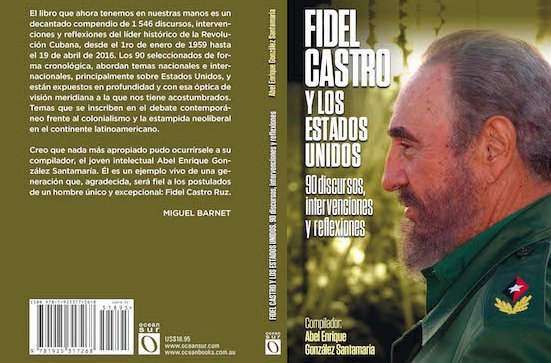
"Look, see if you see Fidel," joked a Cuban Friday afternoon in Key West (Florida), the southernmost point of the continental United States. There, by the sea, there is a post that indicates the proximity to Cuba: 90 miles, 144 kilometers. Dozens of tourists lined up to take pictures. It was a few hours before the death of Fidel Castro, who helped turn these 90 miles into a metaphorical wall of barbed wire. Nobody knows if the 'wall man', Donald Trump, the new president of the United States, will continue with the demolition tasks that his predecessor began, or in four or eight years, tourists will continue to take photos at this symbol of division . Fidel Castro would not have been without the United States, and without Fidel Castro the contemporary United States would have been another country. He dies having challenged eleven American presidents, with the regime on its feet, and the thaw driven by Barack Obama underway and now in doubt after Trump's victory in the Nov. 8 election
Fidel Castro would not have been without the United States, and without Fidel Castro the contemporary United States would have been another country. He dies having challenged eleven American presidents, with the regime on its feet, and the thaw driven by Barack Obama underway and now in doubt after Trump's victory in the Nov. 8 election.
Castro is the most American of the revolutionary leaders that emerged in the mid-twentieth century. In the United States, he found financing bases for his activities against the Batista regime. And it was the press of this country that elevated him to an almost pop status in his Sierra Maestra years and in the first steps in power in Havana. Who knows if, in an alternate reality, it could have been a Malcolm X, or a Mandela, but the young and heroic revolutionary for the Americans of 1960 soon became antagonistic.
In the middle of the stage sometimes, on the periphery, others, Castro has also been a permanent presence for Washington. The history of the first world power without the Caribbean island is not understood. Cuba has been a key geopolitical piece since the nineteenth century, one of the locks in the Gulf of Mexico, the natural outlet of exports down the Mississippi to the port of New Orleans. The most tense episodes of the Cold War had to do with Cuba. The failed invasion of the Bay of Pigs in 1961, under the presidency of Democrat John F. Kennedy, drove decades of Cuban exile away from the Democratic Party. The following year, the installation of Soviet missiles on the island placed the world on the edge of the nuclear cliff.